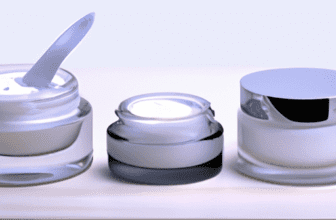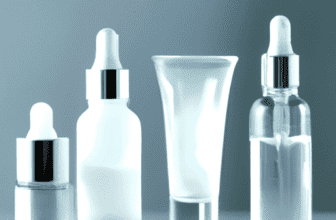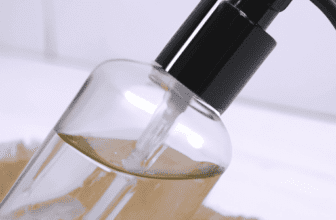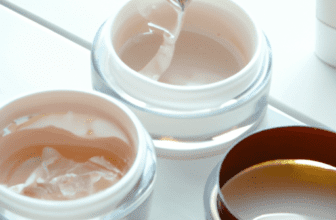Does Moisturizer Cause Acne? Debunking the Myths and Facts
Debunking the Myth: Moisturizer Causes Acne
To clarify the common misconception that moisturizer causes acne, this section will provide insights into your skin’s behavior after using moisturizers. Understand how moisturizers affect your skin and potential consequences. Addressing the idea that moisturizers clog pores, we’ll explain acne formation, and how skin pH impacts the prevention of acne.
Understanding how moisturizer affects the skin
Do moisturizers cause acne? Nope, this is a myth. Moisturizers are essential for healthy skin. They hydrate and replace lost oils. Plus, they form a barrier that keeps out pollutants and irritants. They also help fight dryness, wrinkles, and other signs of aging. But not all moisturizers are the same. Make sure you choose one suitable for your skin type. A word of advice: apply after showering or washing your face to lock in moisture even more.
Addressing the common notion that moisturizers clog pores
Tired of hearing that moisturizers clog pores and cause acne? Well, it’s a myth! Keeping the skin’s natural moisture barrier intact actually prevents breakouts.
Surprisingly, most moisturizers are non-comedogenic. That means they won’t block pores. Plus, you can find formulas and ingredients that suit all different skin types – from light gels to heavy creams.
Still, individual skin types and sensitivities may cause reactions when using certain ingredients. If this happens, don’t miss out on the benefits of moisturizing. Instead, ask a dermatologist or do a patch test before trying something new.
Remember, healthy skin isn’t just about treating blemishes. It’s also about consistent hydration through proper moisturization.
Explaining the why and how of acne formation
Unraveling the Scheme of Acne Formation
Acne is caused by blocked hair follicles packed with oil, dead skin cells, and bacteria. The main reason for acne is an increase in androgens (male hormones). These hormones stimulate sebaceous glands, making too much sebum. If the bacteria are trapped in pores, it causes an inflammatory response.
Does Moisturizer Help in Acne Formation?
Contrary to popular belief, moisturizers do not cause acne. In fact, they can help avoid it by keeping skin hydrated and healthy. When skin is dry, it produces more oil to make up for the dryness. This clogs pores and causes acne. Moisturizers protect the skin from irritants like pollution and weather changes, which can make acne worse.
Additional Tips to Prevent Acne
In addition to moisturizing, other tips include:
- avoiding dirty phone screens;
- not touching your face often;
- changing bedding regularly; and
- avoiding scrubbing soaps and hot showers.
Why These Methods Work
Limiting exposure to irritants helps avoid pore-clogging, allowing cells to heal quickly helping lessen inflammation and future breakouts. Cleaning and exfoliating dirt in bedding lessens acne-causing factors. Maintaining the right pH balance stops acne. No need for a chemistry degree to figure this out!
The role of skin pH in preventing acne
The pH level of skin is key in avoiding acne. An acidic mantle safeguards it from damaging microorganisms that can cause breakouts. Keeping a healthy pH level is important for glowing skin.
Using harsh cleansers or alkaline items can upset the pH balance. This can lead to redness, tenderness, and bacteria imbalances that cause acne.
Opt for gentle skincare products to maintain a balanced pH level. Understanding the role of pH levels in skincare is necessary for clear, healthy-looking skin.
Care for your skin’s natural barrier and use products to keep it functioning optimally. Don’t miss out on a clear complexion; prioritize an even acidity balance to keep your skin at its best!
Moisturizing and Acne: A Tricky Relationship
To maintain healthy skin while combating acne, you need to master the tricky relationship between moisturizing and acne, with knowledge of the benefits and right methods. So, let’s dive into the sub-sections of the topic – the benefits of moisturizing for acne-prone skin, how to choose the right moisturizer for acne-prone skin, understanding the ingredients that are beneficial for acne-prone skin, and how and when to apply moisturizer to prevent acne.
The benefits of moisturizing for acne-prone skin
Finding the ideal moisturizer for acne-prone skin can be challenging. Though adding moisture to oily skin might seem counterintuitive, it can bring various advantages. Such as:
- Hydrating dry, flaky bits of skin caused by acne medications.
- Making fine lines and wrinkles less visible.
- Keeping sensitive skin safe from cold weather and wind.
- Stopping too much oil production by keeping skin hydrated, thus decreasing breakouts.
- Helps topical treatments in acne regimens to absorb better.
- No moisturizer could cause more inflammation in already irritated areas, worsening acne symptoms.
It is essential to pick a moisturizer that meets your skin type and needs. Look for non-comedogenic formulas which won’t block pores or cause breakouts. Test new products before adding them to your routine.
When choosing a moisturizer for acne-prone skin, think if you need an oil-free formula or one with anti-inflammatory properties. Plus, remember that moisturizing is only one part of your acne care plan. Sticking to other skincare steps like cleansing and treating blemishes is crucial.
Ancient cultures used natural oils such as olive oil and honey to moisturize their faces. These days, advances have been made in making formulas designed for diverse skin care issues. Finding an appropriate moisturizer is key to having a soft, plump and healthy-looking skin even during intense breakouts.
Choosing the right moisturizer for acne-prone skin
When it comes to healthy skin, picking the right moisturizer is key. It can be tricky, but choosing the wrong one can make things worse. Here’s 6 things to keep in mind:
- Go for light creams that won’t block your pores or stop natural oil production.
- You could try formulas with exfoliants or alpha hydroxy acids.
- Choose non-comedogenic ingredients.
- If you have oily skin, pick an oil-free mattifying moisturizer.
- Opt for a formula designed specifically for acne-prone skin with anti-inflammatory ingredients like green tea extracts and niacinamide.
- Always go for a water-based moisturizer that hydrates without clogging pores.
Also, keep in mind that your daily skincare routine is just as important. Use gentle cleansers, keep your face clean and use a quality sunscreen. Serums with Vitamin C or retinol can help too. And, most importantly, don’t squeeze pimples. With the right effort and lifestyle changes, you’ll have healthy, acne-free skin!
Understanding the ingredients that are beneficial for acne-prone skin
It’s important to know which ingredients work well on acne-prone skin. Salicylic acid reduces inflammation and unclogs pores. Benzoyl peroxide reduces bacteria and breakouts. Retinoids improves cell turnover and minimizes discoloration from scars. Glycolic acid smooths out rough patches and prevents future breakouts. Tea tree oil is great for spot treatments, but too harsh for the face. Niacinamide helps protect the skin barrier, reduces redness and minimizes pores.
Be aware of ingredients like alcohol, fragrances, and silicones that may cause irritation or flare-ups. Gentle products formulated for sensitive or acne-prone skin are recommended by dermatologists. A mild cleanser can reduce inflammation without stripping natural oils.
Dr. Joshua Zeichner advises: “Overscrubbing your face can dry it out, triggering increased oil production – which leads to more breakouts!” So, moisturize carefully and strategically to keep acne away.
How and when to apply moisturizer to prevent acne
Maintaining healthy skin requires knowing when and how to moisturize correctly. Unsuitable moisturizers can cause acne and upset the natural oils of your skin. These 4 steps will help you moisturize your face:
- Cleanse your face properly.
- Choose a non-comedogenic moisturizer that fits your skin type.
- Dab a small amount onto your fingers and spread evenly in a circular motion.
- Gently dab your face with a soft towel to remove excess.
Also, don’t rub or touch your face too hard with a towel as this may irritate it. When should you apply moisturizer? After a shower or washing your face, but only when it’s completely dry.
Don’t over-moisturize either. It can damage pores and lead to oiliness. Use products labeled “water-based” or “oil-free.”
Avoid overwashing or exfoliating since these strip away essential natural oils. Try using gentle cleansers instead.
Using blotting sheets when out instead of re-applying cream can help with oily skin symptoms.
Moisturizing the right way stops acne and balances hydration levels without blocking pores, leading to a fresh, glowing complexion. Clear skin is the goal, but to get there, one must be mindful of moisturizing and acne.
Common Misconceptions and Real Facts
To clear your doubts and debunk common misconceptions surrounding skincare, you need to know the real facts. In order to understand the section on ‘Common Misconceptions and Real Facts’ with ‘Myth: Oily skin doesn’t require moisturizing’ and ‘Myth: Moisturizers with SPF cause breakouts’ as well as ‘Fact: Proper moisturizing can prevent acne by maintaining the skin’s natural barrier’ and ‘Fact: Moisturizers with non-comedogenic ingredients are safe for acne-prone skin.’ So let’s examine each sub-section to get a clear perspective on how skincare myths can create more harm than good.
Myth: Oily skin doesn’t require moisturizing
A common misconception is that people with oily skin don’t need to moisturize. But that’s far from the truth! Oily skin needs moisture too, to keep its balance.
If you don’t moisturize, your skin will try to make up for the lack of moisture by producing more oil. This can lead to breakouts, flakiness, irritation and even wrinkles.
The key is to use lightweight, non-clogging formulas designed for oily skin. Look for hyaluronic acid and glycerin, which hydrate without weighing down your skin.
Everyone’s skin is different, so finding the right moisturizer takes time. If you’re not sure, consult a dermatologist or esthetician.
Don’t skip moisturizer – it won’t get rid of oil. Instead, choose a light lotion or gel-based formula for oily skin. Moisturizing keeps your complexion looking great, while reducing oil production.
Myth: Moisturizers with SPF cause breakouts
Contrary to popular belief, moisturizers with SPF do not cause acne breakouts. In fact, they can actually protect the skin from damaging UV rays. So, no more worrying about your face becoming a pizza if you don’t moisturize!
For those with oily or greasy skin, SPF-containing moisturizers offer a more pleasant option for daily use. If you’re still breaking out, it’s important to consider other factors, like hormones, stress, and diet.
The truth is, moisturizers with SPF are a great way to keep both sun damage and breakouts at bay. So, the next time you hear someone say otherwise, you’ll know better!
Fact: Proper moisturizing can prevent acne by maintaining the skin’s natural barrier
Properly moisturizing can help shield skin from harmful bacteria that may cause acne. Choose a moisturizer that doesn’t contain comedogenic ingredients which may block pores. Look for non-comedogenic products with alpha-hydroxy acids (AHAs) like glycolic acid or salicylic acid.
As part of your daily skincare routine, cleanse your face with a gentle cleanser. Then follow up with a moisturizer to protect and hydrate your skin. Moisturizers offer other benefits too! They can reduce signs of aging, soothe irritated skin after shaving or waxing, and act as a barrier against environmental pollutants.
So, what are you waiting for? Incorporate a high-quality moisturizer into your daily skincare routine to improve texture and prevent dreaded pimples and breakouts. Don’t let acne bring you down, moisturize like a boss!
Fact: Moisturizers with non-comedogenic ingredients are safe for acne-prone skin
A recent survey indicates that using moisturizers with non-comedogenic ingredients is great for individuals with acne-prone skin. Here are a few reasons why:
- Non-comedogenic ingredients don’t block pores, resulting in fewer breakouts.
- Most non-comedogenic products have been tested and declared safe to use daily.
- Moisturizers increase hydration which is vital for better-looking skin.
- Doctors often advise moisturizing as an important part of a healthy skincare routine.
- Not having a moisturizer can be costly; not only will dry skin look duller but it can also hinder the absorption of medicines.
- Non-comedogenic products not only reduce breakouts, but they also lead to brighter skin.
Some think moisturizers make their skin extra greasy. But, this is usually just the body overproducing oil if not hydrated enough.
Interestingly, during WWII, Noxzema created ‘Noxzema Anti-Acne Medicated Cream’ for soldiers’ severe acne. This cream was designed to not clog pores and was so successful that it was available commercially after the war.
Moisturizing without causing acne is hard but with proper skincare, you can remain blemish-free!
Best Practices for Preventing Acne while Moisturizing
To prevent acne while moisturizing, use oil-free, lightweight moisturizers for oily skin. Keep your skin clean and exfoliated to prevent acne. Try applying moisturizer after using acne medication. Use non-comedogenic makeup and skincare products for the best results.
Using oil-free, lightweight moisturizers for oily skin
Applying the proper moisturizer is key for those with oily skin and acne. Here are 5 points to consider when using oil-free lightweight moisturizers:
- Opt for water-based, non-comedogenic formulas.
- Seek out components such as hyaluronic acid or ceramides that hydrate, without clogging pores.
- Avoid thick creams and oils that could trigger more oil production and breakouts.
- Look for moisturizers with salicylic acid or benzoyl peroxide – they treat acne while hydrating.
- Apply a modest amount of product, giving extra attention to drier spots (e.g. cheeks & jawline).
It’s important to be consistent with your skincare routine. Find a suitable moisturizer and stick to it. Moreover, make sure it has an SPF of 30 or higher – this protects your skin from UV rays.
A friend of mine experienced recurring breakouts due to heavy creams and oils. She decided to switch to a lightweight, water-based lotion – and in a few weeks her face was almost clear.
It’s true – prevention really is better than cure!
Keeping the skin clean and exfoliated to prevent acne
For clear skin with no acne, proper skin care is key! Keeping your pores unblocked and skin exfoliated helps you avoid breakouts. Follow these six steps for clean, glowing skin:
- Cleanse daily with an oil-free cleanser.
- Exfoliate two to three times a week with a scrub or chemical exfoliant.
- Skip harsh scrubs and washcloths that could cause irritation.
- Use non-comedogenic moisturizers to keep your skin hydrated.
- Avoid touching your face as much as possible.
- Wear a broad-spectrum sunscreen every day.
Plus, ditch heavy makeup that can clog pores and cause acne. Choose the right products for your skin type – understanding your skin type will help you find the ideal routine for you.
With the right habits, you can have clear, moisturized skin without breakouts. Start caring for your skin now and you can enjoy a glowing complexion for years!
Applying moisturizer after using acne medication
Moisturizing correctly after acne medication is key for great skin. Use a gentle, non-comedogenic moisturizer right after applying acne treatment to prevent dryness and irritation. Opt for oil-free, fragrance-free products to avoid any negative reactions. Also, refrain from using too many products and touching your pimples frequently.
Having a good skincare routine is essential. Cleanse, nourish, hydrate and protect your skin regularly. Skipping this will cause more breakouts and scars, which can damage your skin in the long run. So, use the right techniques to prevent acne and keep your skin healthy and glowing.
Using non-comedogenic makeup and skincare products
Skincare and make-up can lead to breakouts. To prevent this, look for products labeled “non-comedogenic”, “oil-free”, or “won’t clog pores”. Read the ingredient list carefully and avoid heavy foundation and oily moisturizers. Test a small area of skin before using it.
Remember, diet and genetics may still cause issues even with non-comedogenic products. Pro Tip: Get a personalized skincare routine from a dermatologist, tailored for your unique skin type and issues. And don’t forget to keep your skin hydrated and emotions moisturized!
Conclusion: The Truth about Moisturizing and Acne
Myths say moisturizers cause acne, but that’s not true! Keeping skin hydrated and reducing oil production can prevent acne. To choose the right moisturizer, select oil-free, non-comedogenic, and fragrance-free products. Don’t overdo it: use just a pea-sized amount on affected areas.
Don’t be fooled by myths – look after your skin properly! Avoid blemishes and irritations by getting the facts and taking regular care of your skin. Enjoy a smooth complexion and healthy-looking skin.
Frequently Asked Questions
Q: Does moisturizer cause acne?
A: Contrary to popular belief, moisturizer does not cause acne. In fact, moisturizer can actually help prevent acne by keeping the skin hydrated and maintaining its natural balance.
Q: Can certain ingredients in moisturizer cause acne?
A: Yes, certain ingredients in moisturizer can potentially cause acne, particularly if you have sensitive skin or are prone to breakouts. To avoid any issues, look for non-comedogenic moisturizers that are specifically designed for acne-prone skin.
Q: Should I avoid moisturizer altogether if I have acne-prone skin?
A: No, you should not avoid moisturizer altogether if you have acne-prone skin. It’s important to find the right moisturizer that won’t clog pores or exacerbate your acne.
Q: How often should I moisturize if I have acne-prone skin?
A: You should moisturize your skin twice a day if you have acne-prone skin, once in the morning and once at night. This will help maintain balance in your skin and prevent dryness that can lead to breakouts.
Q: Can oily skin benefit from moisturizer?
A: Absolutely! Oily skin can benefit from moisturizer just as much as dry skin can. In fact, skipping moisturizer can actually cause your skin to produce more oil, leading to breakouts.
Q: What are some other ways to prevent acne besides moisturizing?
A: To prevent acne, it’s important to maintain a consistent skincare routine, avoid touching your face, and use non-comedogenic makeup and skincare products. Additionally, incorporating a balanced diet and managing stress levels can also help prevent acne.





